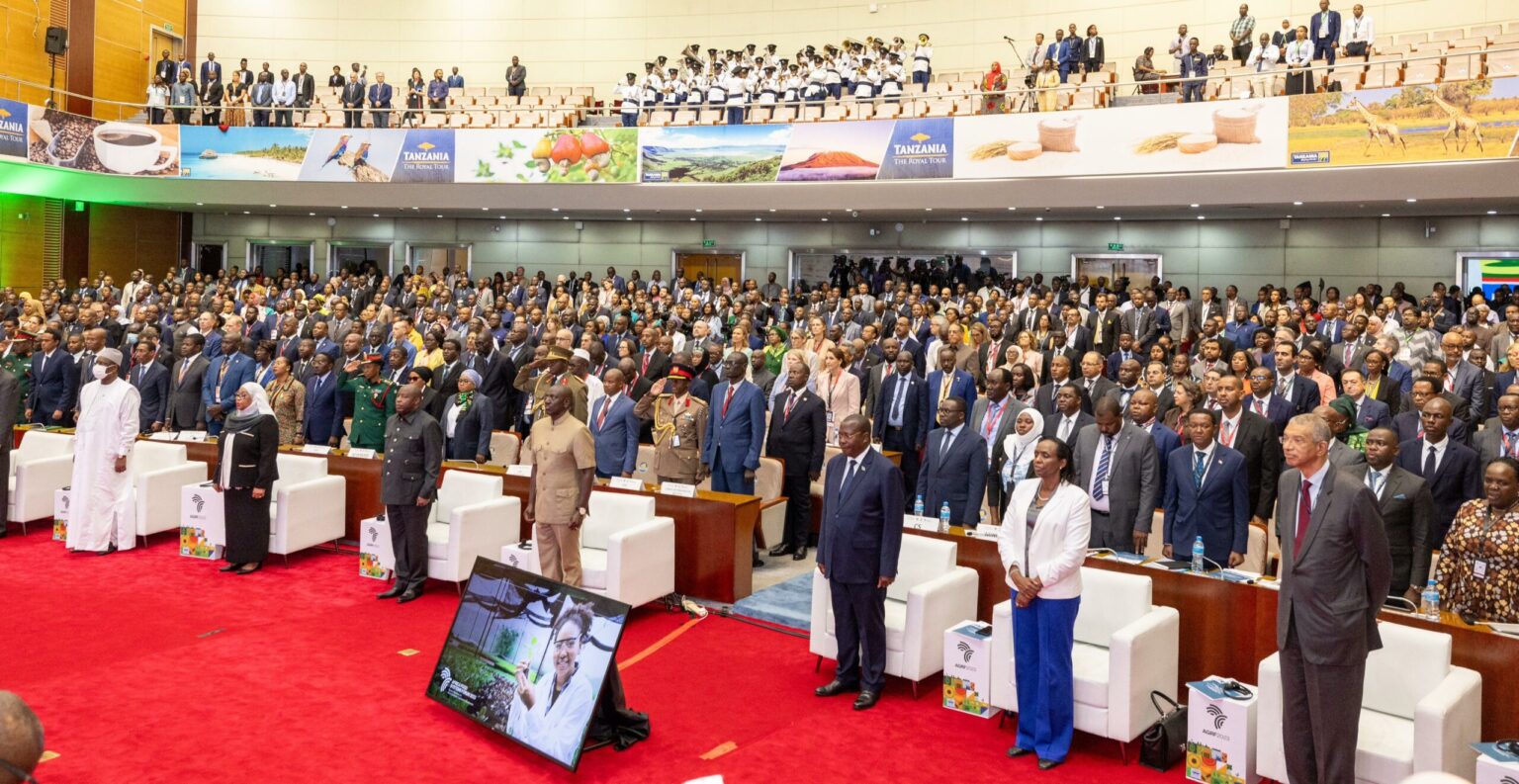- Over 283 million Africans experience hunger daily, and millions suffer from malnutrition, a crisis that demands attention
- Tanzania’s Samia Suluhu urges African leaders to prioritize the agriculture sector and align it with the 2014 Malabo Declaration.
- Kenya’s William Ruto says the adoption of technology, including online distribution of fertilizer, is transforming agriculture.
Africa faces a pivotal moment where challenges looming on its doorstep can be transformed into opportunities to revamp and reshape its agriculture policies and strategies.
President Samia Suluhu Hassan emphasized this during the Africa Food Systems Summit 2023, held in Dar es Salaam from September 5-8.
Dr Samia urged African leaders to prioritize the agriculture sector, aligning their goals with current economic needs and the Malabo Declaration 2014, which calls for increased agriculture budgets and inclusive growth.
Over 283 million Africans experience hunger daily, and millions suffer from malnutrition, a crisis that demands attention. President Samia implored fellow heads of state to take action.
Tanzania entering into global food markets
She also highlighted Tanzania’s Agenda 10/30, a strategy to enhance the agriculture sector by 30 percent by 2030, with plans to become a leading exporter of maize, rice, vegetables, and edible oils.
“Tanzania is committed to entering into regional and international food markets, to sustain food demands across nations,” explained President Samia.
Further, Samia emphasized leveraging the African Continental Free Trade Area (AfCTA) and enhancing transport, energy, and communication infrastructure to facilitate business and trade within Africa and beyond.
“We are utilizing it (AfCTA) with seven countries, Cameroon, Egypt, Ghana, Kenya, Mauritius, Rwanda and Tunisia,” she added.
She also revealed Tanzania’s commitment to supporting farmers with credit and promoting agribusiness among youth through programs like Building a Better Tomorrow (BBT).
“We are implementing an industrial program, Tanzania Agro Industrialization Program that adds value to farm produce, improves irrigation infrastructures, research and better seeds production and market systems enhancement,” she noted.
On his part, her Kenyan counterpart William Ruto underscored the importance of increasing productivity and incorporating youth into agriculture. Kenya’s adoption of technology, including online distribution of fertilizer, is transforming the sector.
“The provision of fertilizer and seed is very important; these must be accessible, affordable and available,” he added. Last year, Kenya took a bold step of tapping technology to improve agricultural operations, especially in distribution of farm inputs.
Kenya eliminating middlemen in agriculture sector
According to Dr Ruto, Kenya registered roughly five million farmers and distributed fertilizer online, eliminating brokers, middlemen, and profit-sapping conmen who choke agricultural value chains.
Further, the approach saw a significant reduction in the cost of fertilizer from about $50 a tonne to less than $20 for the same. Consequently, this pushed up fertilizer uptake in Kenya’s current maize season.
“Last year we projected to harvest around 44 million maize bags – because of the fertilizer and seed intervention, the project this year stands at 61 million bags,” he added.
Kenyan President pointed out that the region loses between 30 to 40 percent of harvests due to poor storage, lack of transport, and inadequate infrastructures across the value chain.
“We are investing close to $30 million to make sure our farmers have driers, particularly in the grain areas and doing market infrastructure. We are building 400 markets around Kenya and another 50-county aggregation and industrial parks where we have storage, cold rooms and add value with produce.”
Doubling down on President Samia’s take on ensuring farmers get financing, Dr Ruto stressed the vitality of furnishing farmers with affordable financial services.
“We are adding 10 billion shillings to Agricultural Finance Corporation to ensure farmers have seasonal credit they can use to expand their productivity,” he added.
As Kenya finds itself in a rather semi-harsh geographical position, with 85 percent of arid and semi-arid land, it seeks to supply its farmers with adequate infrastructures for irrigation.
Africa’s agriculture has no future without youth on board
“We are working with Afrexim Bank, the World Bank, and other partners to build 100 mega-dams, 1000 micro-dams for water storage because rains are going to be very unpredictable in the future and sometimes, we confuse rain for water. We need water to grow food,” Dr Ruto said.
Unequivocally, President Ruto argued that there is no future in agriculture without bringing young people on board. This comes through changing the narratives that are rather unconventional and old to incorporating more youth-friendly ones.
Dr Ruto stressed the significance of mechanization to attracting young people to agriculture, emphasizing the sector’s potential for future wealth.
“Food is very emotive, thus we need all stakeholders to think, to plan, and to do everything possible to make sure we do it right and this forum brings into context the importance of the subject food and food systems
The Kenyan President acknowledged that untapped potential within East Africa hinders regional growth and prosperity. He commended President Samia’s efforts to dissolve cross-border issues between Tanzania and Kenya, to promote trade and cooperation.
The Africa Food Systems Summit 2023 serves as a platform to align regional strategies and hold leaders accountable for achieving transformative ambitions in agriculture. The summit’s focus on food security and youth engagement underscores its importance in shaping Africa’s future.

